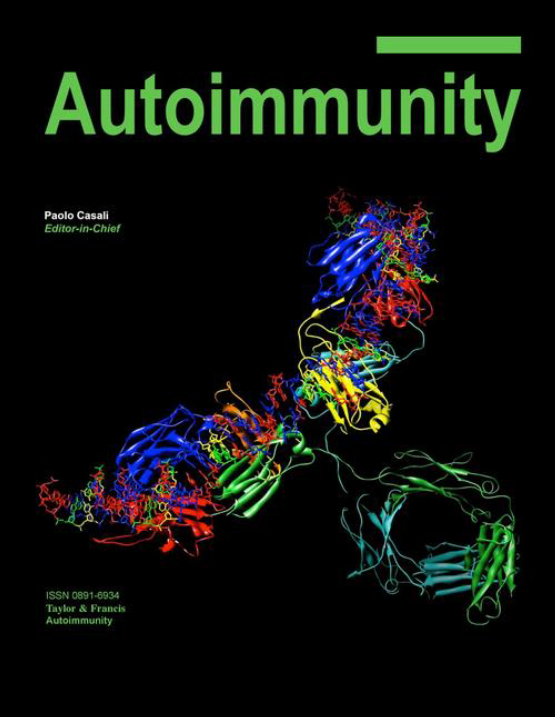Submit a Manuscript to the Journal
Autoimmunity
For an Article Collection on
Novel Insights Into the Pathogenesis of Sjögren’s Syndrome: From Bench to Bedside
Manuscript deadline
30 April 2024


Article collection guest advisor(s)
Dr. Alessia Alunno,
University of L’Aquila, Italy
[email protected]
Dr. Francesco Carubbi,
University of L’Aquila, Italy
[email protected]
Novel Insights Into the Pathogenesis of Sjögren’s Syndrome: From Bench to Bedside
Recent technological developments have allowed us to unveil cellular and molecular mechanisms in Sjögren’s syndrome, leading to new avenues of research and, possibly, new therapeutic approaches.
By collating cutting-edge evidence on the pathogenesis of Sjögren’s syndrome, we aim to expand the therapeutic application of existing drugs and the evaluation of novel compounds.
We welcome original research articles that provide new in-vivo and in-vitro evidence as well as focused review articles which discuss specific areas and/or techniques that could lead to a deeper understanding of Sjögren’s syndrome.
All manuscripts submitted to this Article Collection will undergo full peer-review; the Guest Advisor will not be handling submitted articles. Please review the journal’s aims and scope and author instructions prior to submission.
Please submit your manuscript through Taylor & Francis's Submission Portal.
During the first step of the submission process (under the "Manuscript Details" heading), you will find the question "Are you submitting your paper for a specific special issue or article collection?" Click the radio button for "Yes".
Next, you will be prompted to select the "Special Issue or Article Collection name" from the dropdown menu. Choose "Novel Insights Into the Pathogenesis of Sjogren’s Syndrome" from the list. This will ensure that your manuscript is considered for inclusion.
The manuscript submission deadline is 30 April 2024.
If you have any questions about this Article Collection, please contact Krista Thom at [email protected].
Disclosure Statement: Dr. Alunno and Dr. Carubbi declare no conflict of interest.
Benefits of publishing open access within Taylor & Francis
Global marketing and publicity, ensuring your research reaches the people you want it to.
Article Collections bring together the latest research on hot topics from influential researchers across the globe.
Rigorous peer review for every open access article.
Rapid online publication allowing you to share your work quickly.
Looking to Publish your Research?
Find out how to publish your research open access with Taylor & Francis Group.
Choose open accessSubmission Instructions
All manuscripts submitted to this Article Collection will undergo desk assessment and peer-review as part of our standard editorial process. Guest Advisors for this collection will not be involved in peer-reviewing manuscripts unless they are an existing member of the Editorial Board. Please review the journal Aims and Scope and author submission instructions prior to submitting a manuscript.